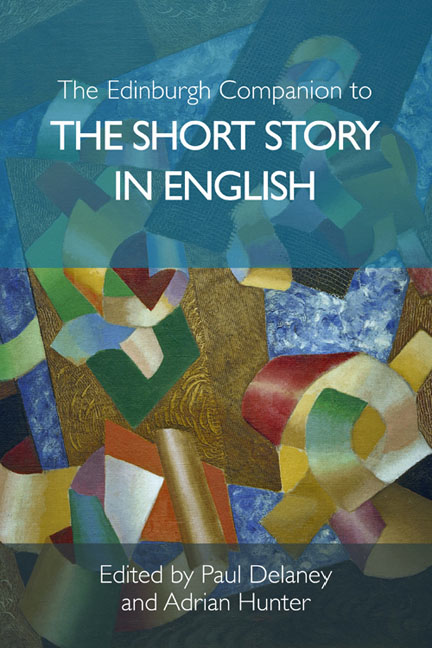Book contents
- Frontmatter
- Contents
- Acknowledgements
- Notes on Contributors
- Introduction
- Part I Historicising the Short Story
- Part II Publishing the Short Story
- 5 The Short Story and the ‘Little Magazine’
- 6 Collections, Cycles and Sequences
- 7 The Short Story Anthology
- 8 The Short Story and Digital Media
- Part III Forms of the Short Story
- Part IV Placing the Short Story
- Part V Identity and the Short Story
- Index of Short Story Titles
- General Index
5 - The Short Story and the ‘Little Magazine’
from Part II - Publishing the Short Story
Published online by Cambridge University Press: 18 December 2019
- Frontmatter
- Contents
- Acknowledgements
- Notes on Contributors
- Introduction
- Part I Historicising the Short Story
- Part II Publishing the Short Story
- 5 The Short Story and the ‘Little Magazine’
- 6 Collections, Cycles and Sequences
- 7 The Short Story Anthology
- 8 The Short Story and Digital Media
- Part III Forms of the Short Story
- Part IV Placing the Short Story
- Part V Identity and the Short Story
- Index of Short Story Titles
- General Index
Summary
IN HER ESSAY ‘MODERNISM, Geopolitics, Globalization’, Melba Cuddy-Keane notes that the end of the nineteenth and the early twentieth centuries saw the beginnings of modern globalisation. Phenomena such as technological advances in global communications, the development of transnational ideologies and discourses like liberalism and Marxism, the increased engagement of ideas at an international level – involving high-profile events like the Olympics and the awarding of Nobel Prizes, for example – all point to globalisation, not as a late twentieth-century phenomenon, but as a long historical process of burgeoning international consciousness. Linking this context to writing and literature, Cuddy-Keane asks: ‘[D]id increasing encounters with cultural others help to produce the multipersonal novel? Did an expanding awareness of intercultural connectivity inform the new intra-cultural discourse that was beginning, at that time, to emerge?’ Many have indeed focused on the novel in relation to such ideas; the history of short fiction, in contrast, has itself received short shrift. Despite the fact that literary histories of the modern short story tend to pin its origins and development to roughly the same period as that discussed by Cuddy-Keane, it is the novel – whether the nineteenth-century realist text, or the twentieth-century multipersonal panorama – that dominates.
Short fiction's place within the context of internationalism was itself an issue raised by writers in the early twentieth century. In her introduction to The Faber Book of Modern Stories (1937), Elizabeth Bowen made two arguments concerning the short story in English: one related to aesthetic form, the other to literary history. First, she argued that the short story ‘was once the condensed novel; it needed a complex subject and depended for merit on the skill with which condensation had been effected’. Second, discussing Thomas Hardy and Henry James, she claims that ‘the English short story had to get from abroad. Rumour, the translation and easier circulation of foreign books, also a widening curiosity, brought Tchehov and Maupassant into the English view.’ James himself had, on more than one occasion, acknowledged Maupassant and Turgenev as masters of the form to whom he looked for instruction, so Bowen's latter observation is not unfounded. But he and Hardy are used to support a larger point: that, influenced by modern travel and technology, and by globalisation, the English short story is a heterogeneous and international form, a product of cross-cultural importation and development.
- Type
- Chapter
- Information
- The Edinburgh Companion to the Short Story in English , pp. 75 - 92Publisher: Edinburgh University PressPrint publication year: 2018



